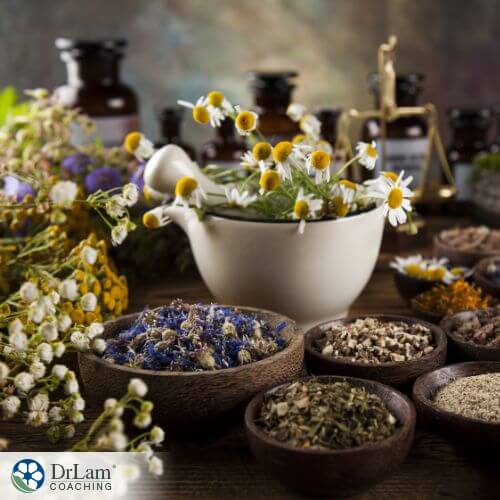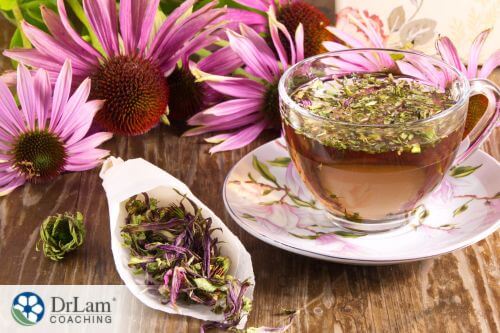 We use flowers to brighten up our homes, gardens, and workspaces. They add some beauty to our lives and can brighten our days. But many flowers also have unique healing properties. These flowers, also called medicinal flowers, can be used in a variety of ways to help enhance healing. This article will look at some of these medicinal flowers and their uses.
We use flowers to brighten up our homes, gardens, and workspaces. They add some beauty to our lives and can brighten our days. But many flowers also have unique healing properties. These flowers, also called medicinal flowers, can be used in a variety of ways to help enhance healing. This article will look at some of these medicinal flowers and their uses.
Anyone can grow medicinal flowers, they can be grown in your garden or in pots and placed in your kitchen if you don't have a garden. There are three main categories of plants:
These medicinal flowers come in a range of yellow and orange colors and can easily brighten up your garden. This flower has antibacterial and anti-inflammatory properties and has been used historically to improve skin conditions such as acne, burns, rashes, and eczema. It's typically used in an ointment or cream form and is applied to the affected skin.
These edible flowers come in shades of red, orange, and yellow and are a great addition to your salad adding a spicy, peppery taste. The leaves and young seeds of nasturtium contain a sulfur compound that has antibacterial properties. Additionally, they also have antifungal and anticancer properties, can reduce blood pressure, and have expectorant properties helping to enhance lung health.
The leaves and flowers are rich sources of micronutrients such as potassium, zinc, phosphorus, calcium, and vitamin C. Vitamin C is a powerful antioxidant. This antioxidant activity can help to reduce and prevent cellular damage caused by pollutants, stress, and illness (1).
These bright flowers are bound to brighten up your garden as well as can spruce up your salad and snack game. Sunflower seeds are rich in nutrients that include:
Flavonoids and phenolic compounds are plant compounds that have strong antioxidant properties and can prevent and reduce cell damage from stress. The seeds are also rich in fiber and can help to reduce cholesterol, reducing the risk of heart disease. These seeds are high in energy due to their unsaturated fat content and make a great snack.
Chamomile is well-known for its calming effects and is commonly found in tea form. However, chamomile's benefits extend beyond its relaxation effects. Its' anti-inflammatory properties can assist in reducing infections and improving wound healing.
Not only does it have a calming effect on your mind by reducing anxiety but it also can relax your stomach muscles and reduce spasms. This can help to provide relief from stomach irritation and flatulence. One study also found that chamomile was as effective in reducing stomach acidity and increasing mucus production as a conventional antacid (2).
 This purple flower will help to attract bees and butterflies to your garden and also has been used for many years as a remedy to relieve and prevent flu and colds. It's rich in bioactive compounds that are believed to help regulate your immune system. Research on echinacea has been mainly on its use for flu and colds, with research on echinacea for other medical conditions being limited. Research suggests that it may help to reduce the severity of symptoms as well as ease symptoms such as a runny nose and sneezing.
This purple flower will help to attract bees and butterflies to your garden and also has been used for many years as a remedy to relieve and prevent flu and colds. It's rich in bioactive compounds that are believed to help regulate your immune system. Research on echinacea has been mainly on its use for flu and colds, with research on echinacea for other medical conditions being limited. Research suggests that it may help to reduce the severity of symptoms as well as ease symptoms such as a runny nose and sneezing.
This plant was originally used in ancient Greece by soldiers to heal wounds. Its commonly used in ointments and poultices and can aid in wound healing with its antibacterial, anti-inflammatory, and antifungal properties. It can relax smooth muscles and reduce stomach and menstrual cramps as well. It also increases the production of saliva and stomach acid, thus improving digestive conditions such as irritable bowel syndrome (IBS).
This medicinal flower is known for its strong scent and the scent alone can reduce anxiety and pain. Additional benefits of lavender include its antimicrobial activity, especially against gram-negative bacteria. It can be used alone to fight infection and can also be used together with conventional medication (3).
This herb may help to improve your kidney health by helping to reduce urinary incontinence and weak kidneys and/or bladder. The bulb, leaves, flowers, and seeds can be used. It is also a handy herb to have in cooking and can help add flavor to meals and salads.
These medicinal flowers will add a touch of elegance to your garden. Rose petals can help to ease digestion and their scent can help to reduce anxiety and depression. Rose hips are the dark red berries that grow at the end of thorny branches of rose bushes. These flowers get their colors from lycopene and beta-carotene, which are color pigments. These pigments may help to enhance eye and skin health. It's also high in antioxidants such as vitamin C and quercetin and can help to reduce inflammation and pain. It's high in unsaturated fats which can help to promote skin health. With these benefits rose hips is a common ingredient in skincare products as well as in teas.
Whilst you may consider this a weed rather than a medicinal flower, dandelion has several healing properties. Dandelions are rich in antioxidants such as beta-carotene and polyphenols and can protect against cell damage and inflammation. Dandelions also contain two bioactive compounds, chicoric and chlorogenic acid, that may assist with increasing insulin sensitivity and regulating sugar levels. They also help to protect the liver from damage and can help to ease constipation (4).
Not only do they provide health benefits but they are rich in nutrients and can supply nutrients to your other plants when they die.
Stress is a natural human experience and can help your body to handle specific situations and/or threats. In response to stress, your body will produce stress hormones including cortisol, a potent stress hormone. Cortisol helps your body to adapt to the stress it experiences. In addition to this, your body has the NeuroEndoMetabolic (NEM) Stress Response System that helps to support your body for optional functioning.
When stress becomes chronic, the body cannot keep up with the cortisol demands and can become depleted in terms of cortisol. This can cause imbalances within the NEM system and result in Adrenal Fatigue Syndrome (AFS). AFS is the non-Addison's form of adrenal dysfunction, where the body's stress response cannot keep up with life's chronic stressors.
Symptoms of AFS will depend on where the imbalance in the NEM system is occurring. Some common symptoms of AFS include fatigue, changes in emotional and mental health, increase in inflammation, frequent infection, and digestive disorders.
Medicinal flowers can come in handy here to provide relief from some of the symptoms such as IBS, anxiety, inflammation, and poor sleep.
Whilst medicinal flowers can provide a range of health benefits there are some cautions to be mindful of.
 Some individuals may not be able to use medicinal flowers. These include:
Some individuals may not be able to use medicinal flowers. These include:
These individuals should consult with their healthcare provider before trying a medicinal flower.
Individuals with AFS can become very sensitive to new products introduced to the body. This includes the use of medicinal flowers. If you are looking at using these flowers, chat with your healthcare provider for guidance before you use them.
Medicinal flowers can be handy to have in your home and can be grown in your own garden. Not only will they improve your health but they can also improve the diversity of your garden and attract bees and butterflies.
If you are currently feeling that your health is out of sorts and find that there are changes in your mental health, energy levels, or weight, you may benefit from our health coaching. You can either call us at +1 (626) 571-1234 directly or click here.
Jakubczyk K, et al. "Garden Nasturtium (Tropaeolum majus L.)- a Source of Mineral Elements and Bioactive Compounds" Rocs Panstw Zakl Hig. vol. 69, no. 2, 2018, pp. 119-26. https://pubmed.ncbi.nlm.nih.gov/29766690/
Srivastava JK, et al. "Chamomile: A Herbal Medicine of the Past with a Bright Future." Mol Med Report, vol. 3, no. 6, 2010 Nov. pp. 895-902. https://www.ncbi.nlm.nih.gov/pmc/articles/PMC2995283/
Kajjari S, et al. "The Effects of Lavender Essential Oil and Its Clinical Implications in Dentistry: A Review." Int J Clin Pediatr Dent. vol. 15, no. 3, 2022 May-June. pp. 385-8. https://www.ncbi.nlm.nih.gov/pmc/articles/PMC9357533/
Ferrare K, et al. "Increase in Insulin Sensitivity by the Association of Chicoric Acid and Chlorogenic Acid Contained in a Natural Chicoric Acid Extract (NCRAE) of Chicory (Chicorium Intybus L.) For An Antidiabetic Effect." J Ethnopharmacol, vol. 215, 2018 Apr. 241-8. https://pubmed.ncbi.nlm.nih.gov/29325917/
If you have limited access to a garden and aren’t able to grow plants in pots, medicinal flowers are available in supplements, essential oils, and teas. These products are not regulated by the FDA, but many can be of a high quality if from a reputable brand.
